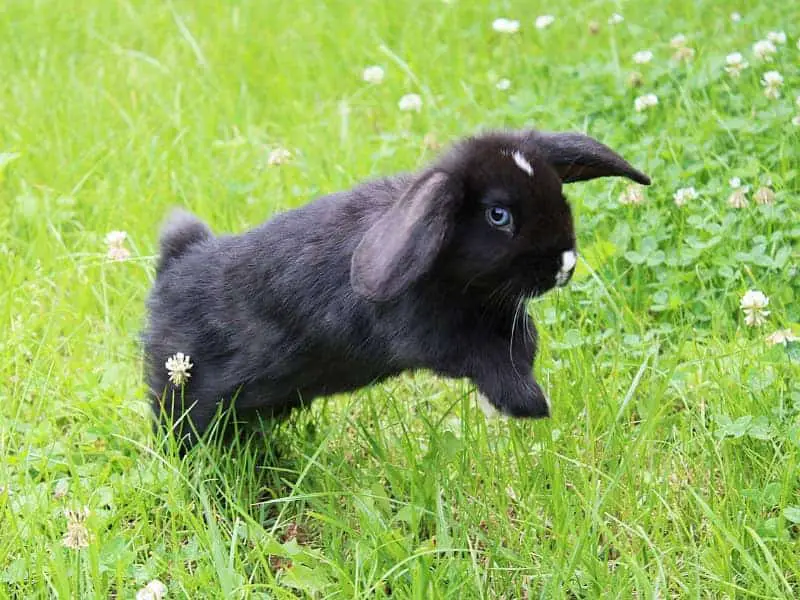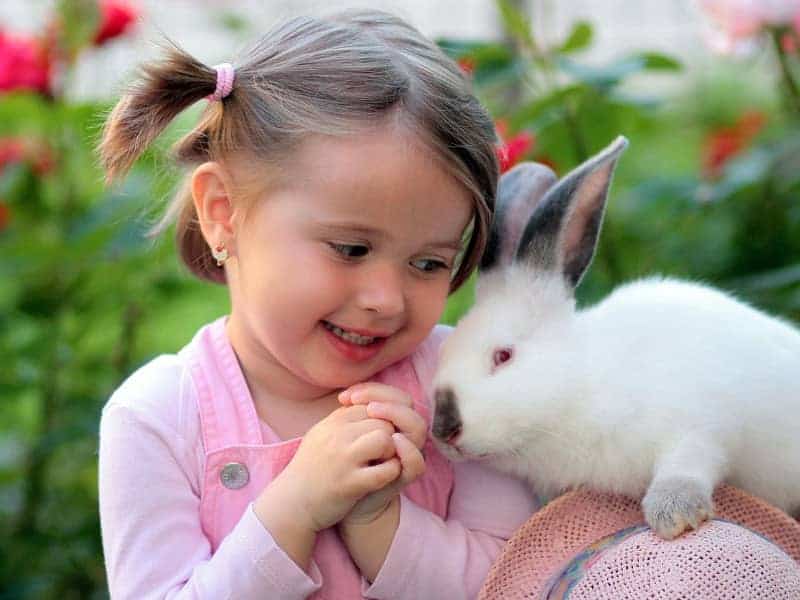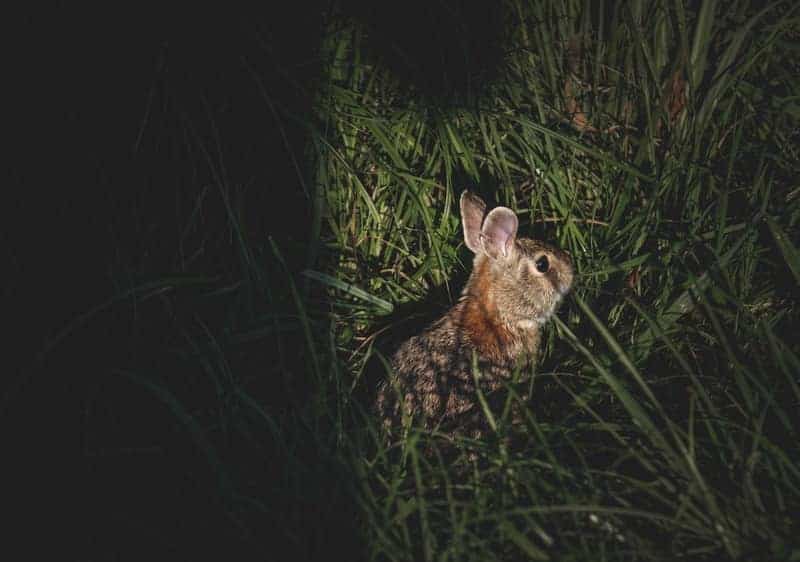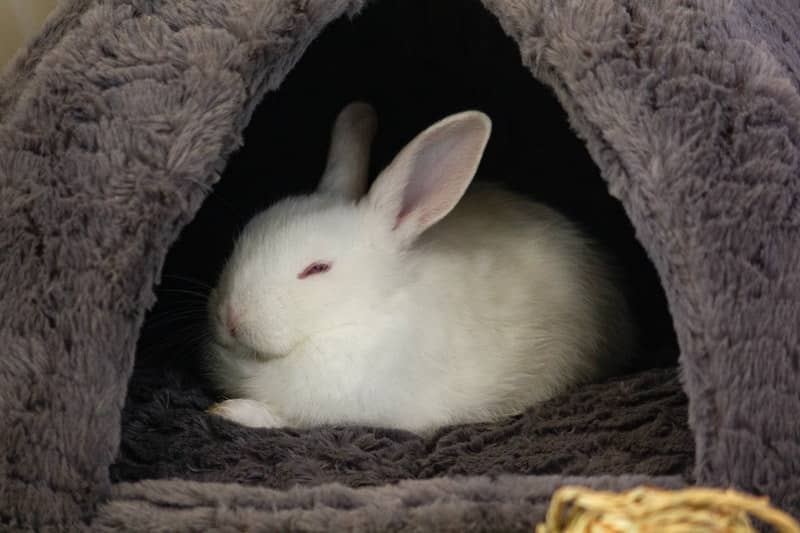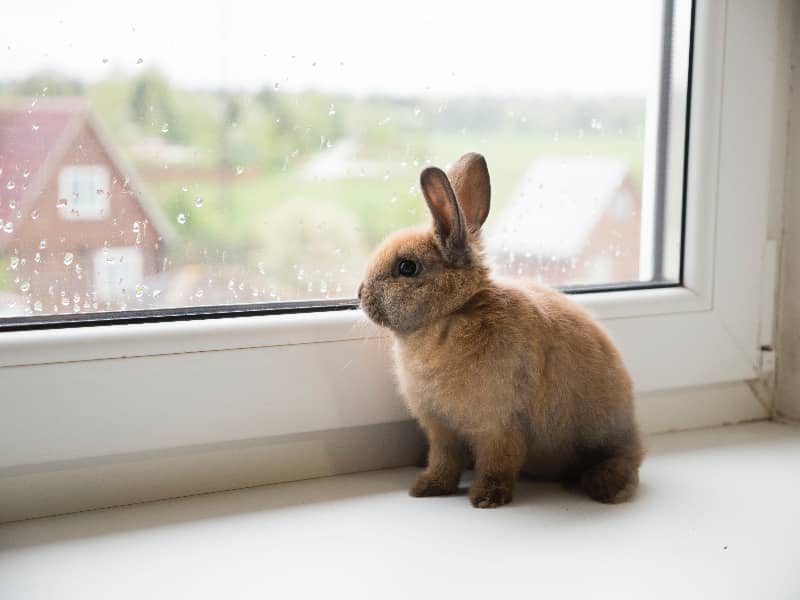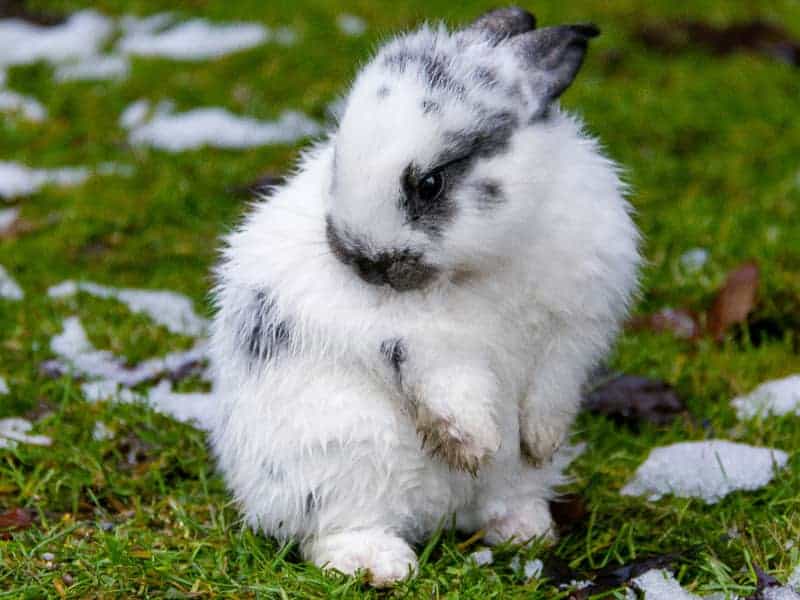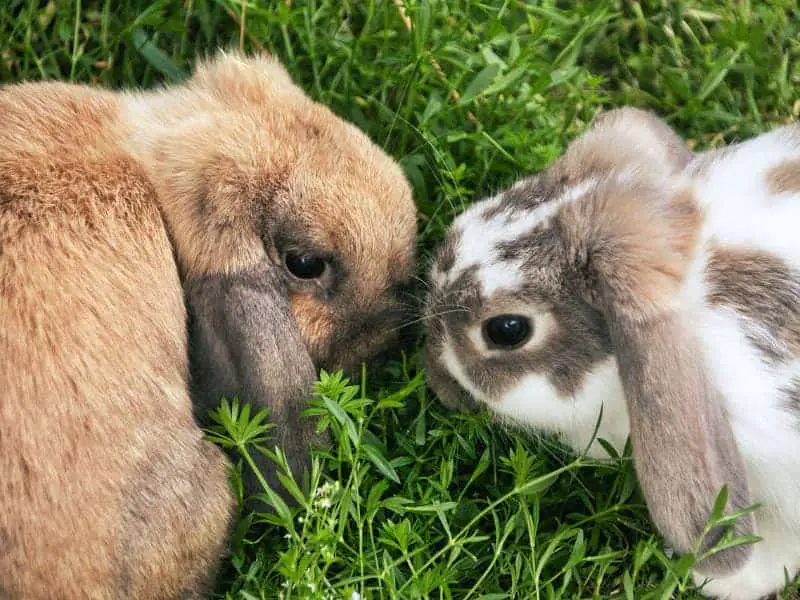
Are rabbits allowed to eat peppers?
Yes, of course rabbits are allowed to eat peppers. However, as with almost any non-everyday food for your rabbits, there are a few things you should keep in mind. For one thing, peppers come in many different varieties, including hot ones, and these should never be fed to your rabbit. What you have to pay attention to exactly, and when a rabbit may eat peppers, you will learn from us.
- Are rabbits allowed to eat peppers?
- Why should rabbits eat peppers?
- What must be considered when feeding peppers?
- How much bell pepper can a rabbit eat?
- Can a rabbit eat hot peppers?
- Are rabbits allowed to eat green peppers?
- Are rabbits allowed to eat yellow peppers?
- Are rabbits allowed to eat red bell bell pepper?
- Are dwarf rabbits allowed to eat peppers?
- Are rabbits allowed to eat the bell pepper drink?
- Are rabbits allowed to eat bell pepper leaves?
- Are rabbits allowed to eat bell pepper seeds?
- Every day peppers for the rabbit?
- Peppers as an attractant for your rabbit?
- Is paprika healthy for rabbits?
- What are the benefits of peppers for rabbits?
- Are rabbits allowed to eat peppers? - Conclusion
- Why should rabbits eat peppers?
Why should rabbits eat peppers?
Peppers are rich in minerals and vitamins, which are essential not only for humans, but also for your rabbit. They serve to keep your animal healthy and vital. Rabbits are pure herbivores, they reject animal protein and should not be offered by us humans either. The rabbit's body is only designed for vegan food and cannot utilize animal protein.
Therefore, the bell pepper can also be a part of the diet of the rabbit. But not all rabbits like peppers. Therefore, first give your pet a small piece and observe what your rabbit does with the bell bell pepper. The red bell bell pepper is especially popular with rabbits. This is not surprising, because this is the type of bell pepper with the highest sugar content.
What must be considered when feeding peppers?
It is important that the bell pepper has been washed well with lukewarm water. This washes off the pesticides adhering to the bell pepper, so that your rabbit absorbs as little as possible. When washing, make sure that you do not use water that is too warm or even too hot. Too hot water opens the pores on the bell pepper and the pesticides can penetrate.
However, it is best if you have peppers from organically controlled cultivation available. If this is not the case, then proceed as described above. Before feeding, you should remove the stalk and the seeds. This is because peppers belong to the nightshade family and these parts contain solanine. This is not compatible for the animals and large quantities can lead to poisoning.
Also, you must remember that peppers consist of over 90 % of water. In summer, a welcome change for your rabbit to prevent dehydration. But too much of it can also cause diarrhea in sensitive rabbits. Therefore, always offer plenty of hay and consider the peppers only as a snack for in between.
How much bell pepper can a rabbit eat?
Of course, here it depends on the size of your rabbit. The rule of thumb is that a maximum of 25 % of the rabbit's diet should consist of vegetables. The 25 % is not based on volume, but on the weight of your rabbit's total daily requirement. So if you know how heavy your rabbit is, then you can easily calculate how much your rabbit may/should eat per day.
Peppers should never make up 25 % of your daily diet. The 25 % is about offering a mix of different vegetables. Carrots, cabbage, kohlrabi and different types of lettuce are especially good for getting to this amount.
Here is a small table to better illustrate this:
| Live weight 1 kg | 100 g fresh food |
| Live weight 2 kg | 200 g fresh food |
| Live weight 3 kg | 300 g fresh food |
| Etc. |
With this simple formula you can quickly calculate the required amount of fresh food for your animal. Of course, there are animals that need a little less or a little more. Therefore, if a rabbit is too thin or too fat, then adjust the amount of food. To this amount, you can now add the 25 % we mentioned for vegetables. Here is also a small table:
| 100 g fresh food | 25 % = | 25 g vegetables |
| 200 g fresh food | 25 % = | 50 g vegetables |
| 300 g fresh food | 25 % = | 75 g vegetables |
| Etc. |
In addition, a maximum of 10 % fresh fruit can be added. The sweeter the fruit, the smaller the amount should be.
Can a rabbit eat hot peppers?
No, under no circumstances should a rabbit eat hot peppers or other highly seasoned foods. There are no spicy foods in nature and hot peppers would probably only be touched once by a rabbit. Your rabbit trusts you and would eventually bite into that bell pepper. The result would be an animal that would suffer greatly from the spiciness.
In addition, it may be that the animal would then make a heavy water intake, which may cause diarrhea. The diarrhea, in turn, would lead to dehydration, which can become a life-threatening condition. Likewise, rabbits' stomachs are not designed for spicy foods and could be damaged as a result. Therefore, never offer spicy foods.
Are rabbits allowed to eat green peppers?
Of course, rabbits can also eat green peppers. Here, the same things must be observed as with all other types of peppers. Wash thoroughly, remove the stalk and seeds and pay attention to the correct feeding amount.
Are rabbits allowed to eat yellow peppers?
Here, too, the same should be noted as with the green bell pepper. However, the yellow bell pepper is slightly sweeter than the green bell pepper and is therefore better accepted by many rabbits. Try something here and see which variety of bell pepper your rabbit likes best.
Are rabbits allowed to eat red bell bell pepper?
Of course, the rabbits may eat the red bell pepper. For most rabbits that like peppers, the red variety is also the most popular. Here is the most sugar contained and accordingly, this type of bell pepper is also particularly popular with the rabbits. Here, however, you should be careful and rather give a little less, so that the intake of sugar for your animal remains within a responsible framework.
Are dwarf rabbits allowed to eat peppers?
Yes, dwarf rabbits can also eat peppers. Here, the above-mentioned feeding recommendations are also to be observed, so that your animal can enjoy the bell pepper without any problems. Likewise, the types of peppers are irrelevant, whether green, red or yellow, what your animal likes, it may eat. The only restriction is the quantity.
Are rabbits allowed to eat the bell pepper drink?
No, the rabbits must not eat the paprika in any case. The reason is the solanine present in it, it occurs in all known nightshade plants. But what makes the solanine so dangerous for your rabbit. The solanine makes the tissue cells, which are responsible for the conversion of food to energy, permeable. This permeability ensures that too much calcium can enter the cell.
An excessive amount of calcium in these cells, ensures a slow death of these cells. A healthy organism can process a small amount of solanine well. However, if poisoning is present, symptoms such as bloating, drowsiness, labored breathing and hypersensitivity to contact with the skin will appear.
In the case of severe poisoning, other symptoms are added. There is nausea, the poisoned person often vomits and hallucinations may occur. Diarrhea and fever also occur. In extreme cases, there is damage to the central nervous system. As you can see, this substance is not to be trifled with, so make sure that your rabbit does not eat the stalk and leaves of the bell pepper.
Are rabbits allowed to eat bell pepper leaves?
No, they are not allowed to. In the section "Can rabbits eat the bell pepper drink?" we have explained exactly why, please read it carefully and inform yourself about it.
Are rabbits allowed to eat bell pepper seeds?
No, also peppers should not be eaten by your rabbit. They contain only a very small amount of solanine, but in our opinion they should not be eaten. For more information about solanine and why it can be so dangerous for your rabbit, see the section above, "Can Rabbits Eat Bell Pepper Trunk?"
Every day peppers for the rabbit?
No, by no means should your rabbit eat peppers every day. Although the bell pepper is healthy and contains many minerals and vitamins that are good for your rabbit, the daily dose would be too much. This has to do with the sugar content, but also with the high water content of the bell pepper.
Peppers as an attractant for your rabbit?
For your rabbit to become hand-tame, peppers are probably not the ideal vegetable. Although many rabbits like to eat peppers, they are rarely attracted to shy animals. Lettuce or dandelions are much more suitable for this purpose, but perhaps you have discovered that your rabbit eats a food particularly quickly and readily, which you can use to attract it.
Is paprika healthy for rabbits?
Yes, the peppers are healthy for your rabbit, they contain important nutrients that are vital for the body of humans and animals. In addition, the calorie content is very low, so there is no risk that your rabbit will be too fat. Here are the vitamins and minerals contained in 100 g of red peppers:
- Beta-carotene 2125 µg
- Vitamin A 354 µg
- Vitamin B6 450 µg
- Vitamin C 140 mg
- Vitamin E 2.9 mg
- Folic acid 50 µg
- Iron 0.5 mg
- Potassium 260 mg
- Magnesium 14 mg
- Copper 80 µg
In addition, the nutritional value of the red bell pepper per 100 g:
- Fat 1 g
- Protein 1 g
- Carbohydrates 6 g
- Dietary fiber 4 g
What are the benefits of peppers for rabbits?
Paprika contains many vitamins and minerals. These ensure that the organism of your animal functions well. We would like to list the most important advantages here.
- Teeth and gums: Vitamin C ensures that the gums and teeth remain healthy. It also ensures a good absorption of iron. This is important to regulate the transport of oxygen in the body.
- Wound healing: Vitamin C is also an important factor here and ensures that your animal has a good wound healing. In principle, vitamin C strengthens the entire immune system and is an important antioxidant for the body.
- Arteriosclerosis: The beta-carotene is essential to protect against joint wear. Likewise, beta-carotene is said to be effective against free radicals. These are generally considered as triggers for cancer.
- Strong musculature: Magnesium ensures a steady and strong muscle development and at the same time strengthens the nerve pathways.
Are rabbits allowed to eat peppers? - Conclusion
Peppers are a good food supplement and can be fed to rabbits in small amounts once or twice a week without any problems. Here you do not have to worry that your rabbit can get health problems. Just pay attention to the amount and your animal gets with the peppers a wonderful snack that expands its diet.
Author

-
Garden animal - A life with nature
Welcome to my animal blog! My name is Dirk and I am happy to take you on my journey through the fascinating world of animals and gardening.
Born 54 years ago, I have had an insatiable curiosity for the animal world around me since childhood. Although I have moved professionally in other industries, my true passion has always been animals and nature. It is remarkable how a small garden has become such an important part of my life.
Many of my fondest memories are associated with the animals that share our home. Whether it's the curious squirrels that scurry across the trees in the morning, the colorful variety of birds that visit our feeders, or the busy bees and butterflies that pollinate our flowers, every moment with them is invaluable to me.
This blog is my contribution to share my experiences, discoveries and insights with like-minded people. Here I will share stories of unforgettable encounters with animals, give tips on gardening and creating wildlife-friendly habitats, and take you on my journeys through nature.
Thank you so much for being here!
Cordial,
Dirk aka garden animal
Last posts
- 27. February 2024PetsVeganes Hundefutter – Grün und Gesund?
- 18. January 2024ChickensOregano für Hühner
- November 27, 2023HamsterDiurnal hamsters
- November 24, 2023HamsterHamster hammock

